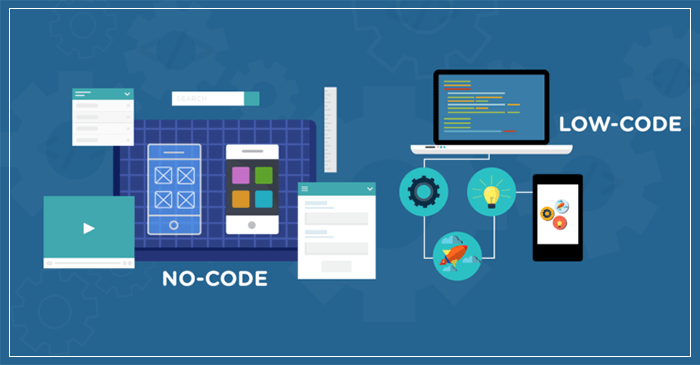

The Big Five tech giants(Facebook, Amazon, Apple, Microsoft, Google) have invested in no-code/low-code platforms to acquire more users into their ecosystem.


This forecast shows that the No Code platform is the future of app development with its rising adoption among businesses.ĬOVID-19 pandemic has shown the value of the digital infrastructure and the need to accelerate the digital transformation that moved companies to adopt no-code technology for their business continuity. Nowadays businesses are looking for rapid app development platforms to fulfill their software needs and no-code platforms tend to do that by supporting the company’s IT departments, enabling citizen developers to build applications according to their requirements.Īccording to Gartner, by 2024, the no-code/low-code application development will be responsible for more than 65% of application development activity with about 66% of big companies using a minimum of four such platforms. Businesses are embracing the no-code platform as it provides them a solution to developing applications more quickly. When IT departments are busy in developing mission-critical applications, citizen developers can create their solutions to fulfill their business needs. No Code platforms are intended to support businesses by supporting their IT departments. The popularity of no code is growing with the entries of big players into the no-code market with increasing the adoption of no-code platforms by organizations to develop trusted applications more quickly. Will the future of coding really be ‘No-Code’? Want to build apps with low code but don’t know where to start? Book a Demo 2. Typically a no-code supports visual app development that enables users to build applications using drag and drop methodologies, adding workflows and automation, connecting to a database and third parties, and adding UI components (like list, table grids, form fields, checkboxes, etc.) to create a complete application without coding. Any person who understands business requirements can create their software without a developer. It’s the thought behind a theory that anyone without writing programming codes can create software. No Code is the revolutionary movement that aims to make everyone a developer. Traditionally software applications are developed with the help of a team of software developers, a huge budget, and a long development timeline. In this article, I attempt to answer some sought after questions. No-code has created a buzz in the online communities where people are asking a great deal about the revolutionary technology and comparing various no-code platforms. What these platforms have in common is a technology that is deeply embedded into their roots and the cause of their existence -“no-code”. With the entry of big names in the no-code market like Google and Amazon, the no-code technology has gained immense popularity.


 0 kommentar(er)
0 kommentar(er)
